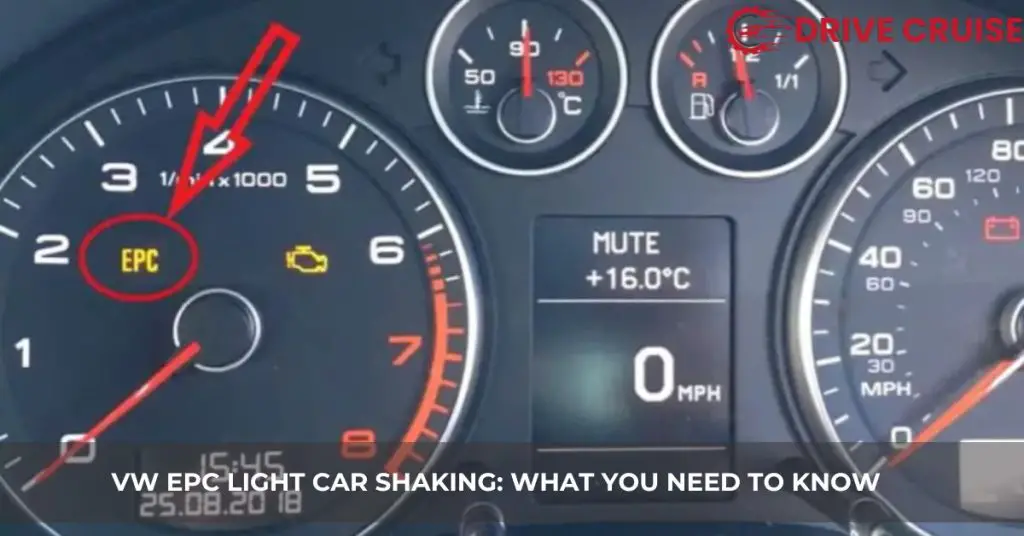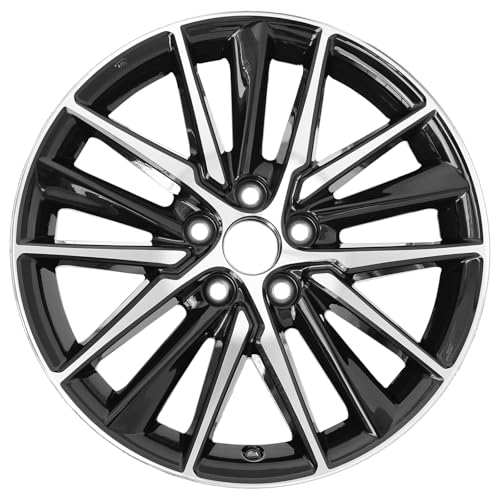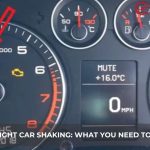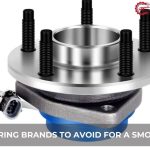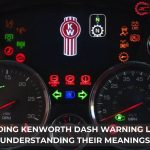If you own a Volkswagen, you may have encountered the EPC (Electronic Power Control) light turning on at some point. This warning light is designed to alert you when there is an issue with the car’s throttle system, traction control, cruise control, or ABS control unit. When the EPC light comes on, it’s important to take it seriously and have your car checked out by a professional.
One potential symptom that may accompany the EPC light turning on is car shaking. This can be a concerning issue, as it can make it difficult to drive your car safely. Car shaking can be caused by a variety of issues, including problems with the brake pads or uneven rear tires. However, it’s important to note that car shaking isn’t always directly connected to the EPC light, and it’s possible for the two issues to be unrelated.
If you’re experiencing car shaking and the EPC light has turned on, it’s important to have your car inspected as soon as possible. Ignoring these warning signs can lead to further damage to your vehicle, and potentially put you and others on the road at risk. A professional mechanic can diagnose the issue and provide you with a plan for repairing your car and getting it back on the road safely.
Decoding the EPC Light: Potential Causes
If you’re experiencing a VW EPC light and car shaking, it can be a frustrating experience. The EPC light is an indicator that something is wrong with your vehicle’s electronic power control system, which can include issues with your throttle system, ABS control unit, traction control, and more. In this section, we’ll explore some potential causes of the EPC light and car shaking, including throttle system issues and other potential causes.
Throttle System Issues
Throttle system issues are the most common cause of a VW EPC light and car shaking. The throttle system regulates airflow into the engine, and malfunctions can cause erratic performance and trigger the EPC light. Here are some potential issues to look out for:
- Faulty throttle body: A faulty throttle body can lead to erratic idle, reduced power, and inconsistent acceleration. If your throttle body is malfunctioning, it may need to be replaced.
- Throttle position sensor (TPS) malfunction: A faulty TPS can send inaccurate signals to the engine computer, causing similar symptoms to a bad throttle body. If your TPS is malfunctioning, it may need to be replaced.
- Dirty throttle body: A buildup of grime can hinder smooth operation and trigger the EPC light. Cleaning the throttle body might resolve the issue.
Other Potential Causes
While less frequent, other issues can also cause the EPC light and shaking. Here are some other potential causes to consider:
- Mass Air Flow (MAF) sensor problems: A faulty MAF sensor can disrupt the air-fuel mixture, leading to hesitation, shaking, and the EPC light. If your MAF sensor is malfunctioning, it may need to be replaced.
- Vacuum leaks: Unmetered air entering the engine through leaks can cause shaking and trigger the EPC light. Check for loose hoses or cracked components in the intake system.
- Spark plug or ignition coil issues: Misfiring due to faulty spark plugs or ignition coils can cause shaking and potentially trigger the EPC light, though less commonly.
Shaking and Shivering: Additional Symptoms to Consider
When your Volkswagen’s EPC light is on, you might experience shaking and shivering while driving. However, there are other signs to consider that can indicate a more complex issue. Here are some additional symptoms to keep in mind:
- Engine performance issues: Reduced power, hesitation, or erratic idle can accompany the shaking. If you notice any of these symptoms, it’s best to have your car checked by a professional mechanic to diagnose the root cause of the problem.
- Abnormal noises: Listen for unusual sounds like hissing or sputtering. Hissing sounds can indicate vacuum leaks, while sputtering can be a sign of misfiring. If you hear any of these noises, it’s important to get your car checked immediately.
- Check Engine Light: In some cases, both the EPC light and Check Engine Light might be illuminated, indicating a more complex issue. If you see both warning lights, it’s best to have your car checked by a professional mechanic to diagnose the issue.
Taking Action: Diagnosis and Repair
If your VW EPC light is on and your car is shaking, it’s important to take action to diagnose and repair the issue. Here are some steps you can take to address the problem:
Consulting a Mechanic with Diagnostic Tools
The first step in diagnosing and repairing your VW EPC light and car shaking issue is to consult a qualified mechanic with diagnostic tools. They can scan the car’s computer for fault codes and recommend the appropriate repair.
When consulting a mechanic, it’s important to find one that is experienced with VW vehicles. They should have access to the necessary diagnostic tools to accurately diagnose the issue. Once they’ve identified the problem, they can recommend the appropriate repair.
Potential DIY Fixes
For experienced DIY mechanics, some simple solutions like cleaning the throttle body might be attempted at home. However, it’s important to note that attempting repairs on your own can be risky and may cause further damage to your vehicle.
If you decide to attempt a DIY fix, refer to a repair manual specific to your VW model and only attempt repairs you are comfortable with. Always exercise caution and follow proper safety procedures when working on your vehicle.
Preventing Future Issues: Maintenance Tips
Regular Scheduled Maintenance
One of the best ways to prevent the EPC light and car shaking issues is to follow the manufacturer’s recommended maintenance schedule. Regular maintenance tasks like replacing spark plugs, air filters, and other critical components can help keep your Volkswagen running smoothly. By performing these tasks on time, you can avoid issues that might trigger the EPC light and car shaking.
Quality Parts and Fluids
Using high-quality parts and fluids recommended by Volkswagen is another way to ensure optimal engine performance and longevity. Avoid using generic replacements that might not meet the specific requirements of your vehicle. By using quality parts and fluids, you can prevent issues that might trigger the EPC light and car shaking.
Regular maintenance and quality parts and fluids are essential to keeping your Volkswagen running smoothly and preventing issues like the EPC light and car shaking. By following these simple tips, you can avoid costly repairs and ensure that your Volkswagen remains a reliable and enjoyable vehicle to drive.
Conclusion
In summary, if you experience the EPC light and car shaking in your Volkswagen, it could be due to a variety of reasons. Some of the potential causes include issues with the throttle system, traction control, brake pads, and ABS control unit. It’s important to note that these are just a few examples, and a professional diagnosis is necessary to accurately identify the underlying problem.
Seeking professional repair services is crucial to ensure that your Volkswagen is back to its optimal performance. Attempting to fix the problem yourself could potentially lead to further damage and costly repairs. Therefore, it’s recommended that you take your car to a certified mechanic who can diagnose and repair the issue.
Regular maintenance and using quality parts can also help prevent future problems with your Volkswagen. This includes replacing worn-out parts and keeping up with routine maintenance tasks like oil changes and brake inspections.
By following these recommendations, you can help prevent potential problems with your Volkswagen and ensure that it runs smoothly for years to come.
Related Posts:

